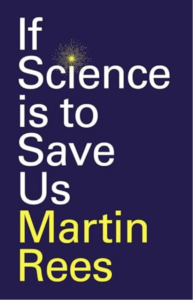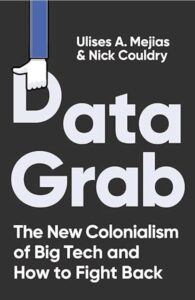Wisteria

Such an amazing plant. Comes back year after year. There are some really ancient ones in Cambridge.
Quote of the Day
”Comparative religion is an admirable recipe for making people comparatively religious.
Musical alternative to the morning’s radio news
Samuel Barber | Adagio for Strings
Link
Long Read of the Day
(Spoiler alert: it’s a really long read!)
Universities as factories
If you’re puzzled about what the so-called ‘leadership’ of Columbia University is up to, then join the club. The President of the institution is Minouche Shafik, described by Wikipedia as
a British-American academic and economist. She has been serving as the 20th president of Columbia University since July 2023. She previously served as president and vice chancellor of the London School of Economics from 2017 to 2023.
From 2014 to 2017, Shafik served as deputy governor of the Bank of England and also previously as permanent secretary of the United Kingdom Department for International Development from 2008 to 2011. She has also served as a vice president at the World Bank and as deputy managing director of the International Monetary Fund. She was created a life peeress by Elizabeth II in 2020.
(Footnotes: Actually Shafik was the Director of the LSE; it’s only since her departure that the role has been rebranded as “President and Vice-Chancellor”. Also, it’s not clear how much of an ‘academic’ Shafik is. She was an Adjunct (i.e. unpaid) Professor in the Economics department of Georgetown University for five years, and an Associate Visiting Professor at the Wharton School, but the bulk of her career thus far suggests someone who is basically an administrator. This may be relevant to what follows.)
On April 30 Shafik wrote to the NYPD asking them to “help to clear all individuals from Hamilton Hall and all campus encampments.” She also also requested that they remain on campus through at least May 17, 2024 — two days after the school’s commencement ceremony is set to take place on May 15.
The cops were reportedly puzzled by this request, but they duly turned up in riot gear. Adam Tooze, who is a Professor at Columbia (and a Financial Times columnist) witnessed what followed and wrote a thoughtful piece about it on his blog. Here’s excerpt from his narrative.
There was no riot last night at Columbia any more than there has been at any other point. The violence came from the police side and it came at the invitation and request of the University administration.
My colleague at the FT Edward Luce is right. It was the adults not the students that caused the real disorder. It is the University administration not the student protestors who have seriously disrupted the end of term and examinations.
When the violence came last night, it was sudden.
When the sign came to force the passage of one of their vehicles, the police first formed up, moving close to the barrier, face to face with the protestors. The protestors formed a soft chain, many reversed, turning their backs to the police ready for what was about to come, knowing they would need to retreat under massive physical pressure.
On an order from their commander, the police pushed. They pushed hard. Very hard. They move fast, as quickly as their bulk and equipment would allow, maximizing momentum. The officers use waist-high steel barriers as plows to drive the protestors back and to pin them in side streets and against walls. Then, after the vehicle was through and the shouting and chanting of the protestors rose to an extreme crescendo, they pulled back and rearranged themselves again, across Broadway behind their barriers. The shouting and staring resumed.
The scene was static. But I would not be honest if I did not say that my stomach churned watching it. The sheer force of the movement, the relentless and sudden drive of the steel barrier against human bodies, moved the air.
Tooze’s point is that riot police are a blunt instrument. They don’t do finesse. As I read that, an episode from my own past came to mind. When the so-called ‘Troubles’ erupted in Northern Ireland in the late 1960s, and the province’s sectarian police force (and their part-time auxiliaries) viciously attacked civilian demonstrations modelled on the US Civil Rights movement, we in the Republic watched in astonishment as the UK government stood by and apparently did nothing while rampant lawlessness reigned in what was — formally — as much a part of the UK as Yorkshire or Northamptonshire.
Eventually, London sent in the army and for a few weeks an uneasy stability was restored, before the army embarked on clumsy and sometimes clueless action against Catholics and republican sympathisers — repressive actions that boosted recruitment into the Provisional IRA, the ruthless and effective terrorist group that then plagued the province for the next three decades.
Many years later, I found myself sitting at a dinner next to the late Merlyn Rees, a prominent British politician who had risen to be Home Secretary (i.e. Minister for the Interior) in a Labour government. As we chatted, I put to him a question that had been on my mind since the late 1960s: “What took you so long to respond to the disorder on the streets of Northern Ireland?” Well, he said, mildly, “What you have to remember is that an army is an extremely blunt instrument.” And so indeed the British army proved to be in Northern Ireland, though it got smarter as time went on.
But back to the question that had puzzled Tooze and many of his academic colleagues: why did the university’s administration take such action to deal with what were essentially peaceful demonstrations of support for Palestinians and criticism of Israeli actions in Gaza?
To this question the economist Branko Milanovic provides a perceptive answer in a blog post entitled “Universities as Factories”. As someone who grew up in Serbia, he had seen quite a lot of the blunt instruments of state power. “The novelty, for me, in the current wave of freedom of speech demonstrations in the United States”, he writes,
was that it was the university administrators who called for the police to attack students. In at least one case, in New York, the police were puzzled why they were brought in, and thought it was counter-productive. One could understand that this attitude by the administrators might happen in authoritarian countries where the administrators may be appointed by the powers-to-be to keep order on campuses. Then, obviously, as obedient civil servants, they would support the police in its “cleansing” activity although they would rarely have the authority to call it in.
But in the US, university administrators are not appointed by Biden, nor by Congress. Why would they then attack their own students? Are they some evil individuals who love to beat up younger people?
No, he says. They’re not necessarily evil. They’re just in the wrong job.
They are not seeing their role as what traditionally was the role of universities, that is to try to impart to the younger generation values of freedom, morality, compassion, self-abnegation, empathy or whatever else is considered desirable. Their role today is to be the CEOs of factories that are called universities. These factories have a raw material which is called students and which they turn, at regular annual intervals, into graduates. Consequently, any disturbance in that production process is like a disturbance to a supply chain. It has to be eliminated as soon as possible in order for the production to resume. Graduating students have to be “outputted”, the new students brought in, moneys from them have to be pocketed, donors have to be found, more funds to be secured. Students, if they interfere with the process, need to be disciplined, if necessary by force. Police has to be brought in, order to be restored.
Which is why it matters that Shafik is really just an administrator. She has done what a CEO of Walmart or Burger King would do in the same circumstances. These people, says Milanovic, are not interested in values, but in the bottom line. That doesn’t mean of course that they won’t
use the talk about values, or “intellectually-challenging environment”, or “vibrant discussion” (or whatever!), as described in a recent article in The Atlantic, as the usual promotional, performative speech that top managers of companies nowadays produce at the drop of a hat.
Yep. One wonders how long it will take the Columbia Trustees to fire ‘Professor’ Shafik.
A more general thought is that the ‘elite’ university system — at least in the US — is in deep trouble. This, at any rate, is the conclusion I draw from a long essay by Louis Menand in the current issue of the New Yorker.
Here’s his conclusion:
The fact remains that all the emphasis on diversity and inclusion did not prevent October 7th from becoming a powder keg. The real problem is that all these issues are playing out in the public eye, and universities are not skilled at public relations. Since 1964, they have been adapting to a legal environment created largely by Democratic Congresses and a Supreme Court still marginally liberal on racial issues. Now a different political regime is in the saddle, in Congress and on the Court, and there are few places left to hide.
Academic freedom is an understanding, not a law. It can’t just be invoked. It has to be asserted and defended. That’s why it’s so disheartening that leaders of great universities appear reluctant to speak up for the rights of independent inquiry and free expression for which Americans have fought. Even after Shafik offered up faculty sacrifices on the congressional altar and called in the N.Y.P.D., Republicans responded by demanding her resignation. If capitulation isn’t working, not much is lost by trying some defiance.
Yep. The trouble is that CEOs don’t do defiance.
My commonplace booklet
And while we’re on the subject of what’s been happening to elite American universities, there’s also the extent to which they are being ‘presidentialized’ — as this terrific post by David Pozen puts it.
It therefore came as a rude awakening for many faculty members at Columbia to learn just how little decisional authority we collectively wield at the university level. When the senate executive committee opposed Shafik’s crackdown on the student encampment, she went ahead and did it anyway — and there was nothing, under the University Charter and Statutes, that the committee or its formidable chair Jeanine D’Armiento could do about it. The full senate then considered a censure resolution. Had it passed, this act of resistance likewise would have had only symbolic effect. President Shafik was hired by, serves on, and reports to the board of trustees, whose members are largely chosen by … the board of trustees. Faculty are on the outside looking in.
To simplify somewhat, we might say that professors are granted a number of basic rights within the university, including rights to free speech and due process and quasi-property rights in the job itself. Students and staff are granted a partially overlapping, though weaker, bundle of rights. What none of us have are governance rights against the trustees who really run the place. We enjoy various individual privileges and protections, but not the franchise.
And that’s definitely enough about universities for today.
This Blog is also available as an email three days a week. If you think that might suit you better, why not subscribe? One email on Mondays, Wednesdays and Fridays delivered to your inbox at 6am UK time. It’s free, and you can always unsubscribe if you conclude your inbox is full enough already!














 h/t Brad DeLong
h/t Brad DeLong

